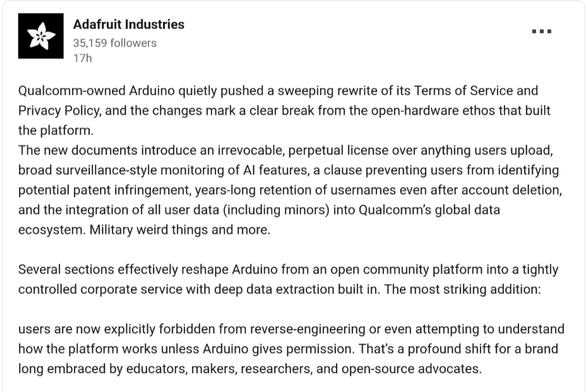"Qualcomm-owned #Arduino quietly pushed a sweeping rewrite of its Terms of Service and Privacy Policy, and the changes mark a clear break from the open-hardware ethos that built the platform."
(source: Adafruit https://www.linkedin.com/posts/adafruit_opensource-privacy-techpolicy-activity-7396903362237054976-r14H)
Oh boy, that was fast! Somehow we need to find more future-proof models for open-source hardware. Letting the market do its thing is showing its true colors once again. Pure evil! 👿
